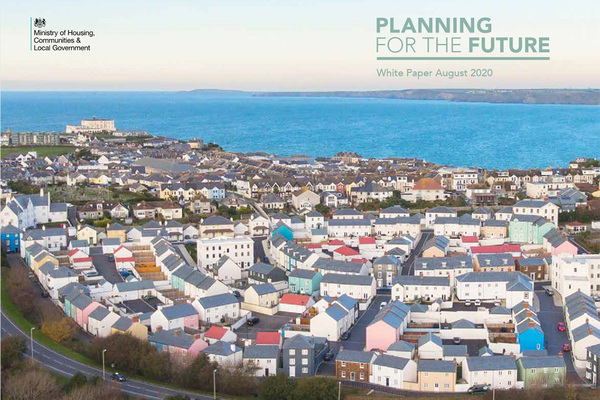You are viewing 1 of your 1 free articles

I fear the government’s planning reforms will make the shortage of accessible housing worse
Planning reforms champion beauty, but how will those in wheelchairs make it into these ‘beautiful’ homes without standards for accessibility, asks Delores Taylor
Last month, the prime minister laid out details of his post-coronavirus recovery plan for the economy and earlier this month we got first sight of some of the detail in the Planning for the Future white paper.
My first thought about the ‘new deal’ recovery plan, described as the most radical planning shake-up since World War II, was ‘what will this mean for accessible housing?’
There are more than 1.2 million wheelchair users in the UK and we know from recent English Housing Survey data that some 400,000 disabled people are living in homes that are neither accessible nor adapted. I was hoping for a reform plan that would rise to this major housing challenge while enabling the sector to build new homes in the quantity we need.
While the white paper certainly proposes very significant changes, I want to see much more detail from the government on the future provision of accessible homes and environments.
The strategy repeatedly mentions beauty but no word of how disabled people will access these ‘beautiful’ buildings. It emphasises ways to ensure planning applications are open to feedback from everyone, but I want to see more being done to encourage the quality of development that would make the resulting homes and neighbourhoods themselves accessible to everyone.
Over the past year I have met with several MPs to discuss the shortage of accessible homes across the UK. According to an Insight report by Habinteg Housing Association, only 1% of new homes planned to be built outside London by 2030 are set to be suitable for a wheelchair user. This is already an unacceptably low number and I’m genuinely fearful that reforming planning rules in this way will mean even fewer accessible homes will be built across the country for our growing older and disabled population.
Recently I was invited to help judge Habinteg’s 50th anniversary essay competition which asked participants’ ideas on what the next 50 years of accessible homes and neighbourhoods will look like. I was struck by many of the innovative ideas about the kinds of policies we need in place to help improve accessibility – many from disabled people themselves. We could do with seeing more of this forward thinking from the government.
We need more disabled people involved in the decision-making process – our lived experience has to inform policy changes if those policies are to have a positive impact on our everyday lives.
For many disabled people, recent experience during lockdown has highlighted that accessibility within the home is just as vital as access to public spaces, retail spaces and the workplace. David Isaacs, outgoing chair of the Equality and Human Rights Commission, noted in a recent article in The Guardian the extent that coronavirus has “exposed the vulnerability of disabled people.” This really struck a chord for me.
As well as the increasingly apparent health inequalities, during my time in lockdown I realised just how important the accessibility of my home was to me. Like most people, I never spent such a long stretch of time in my home before and I couldn’t imagine doing it if the property was inappropriate for my needs. Being able to cook independently and get out into the garden for some fresh air was hugely supportive of my well-being when going out for an hour of exercise each day wasn’t an option.
I’m all too aware of how lucky I am and that many disabled people have had to make do in entirely unsuitable homes during the pandemic with untold impact on their mental and physical health and well-being.
“Our lived experience has to inform policy changes if those policies are to have a positive impact on our everyday lives”
As well as the concerns raised in the Planning White Paper, we are still waiting for the government to fulfil its promise (made in June 2019) to consult on the accessibility of new homes. Last month, following a meeting with Habinteg, housing minister Chris Pincher said: “We’ll be consulting on proposals to make higher accessibility standards mandatory.” The plans proposed in the white paper must not supersede this pledge.
As someone who became disabled at the age of 30, I will continue to speak up for the rights of disabled people. We are here. We come from every walk of life. We are productive and valuable members of our community.
Our numbers increase daily, yet it seems like our chances of independence decrease at an equal rate. And until we have a national baseline for all new homes to be built to inclusive, accessible and adaptable standards, I will not give up fighting.
Delores Taylor, tenant, Habinteg




